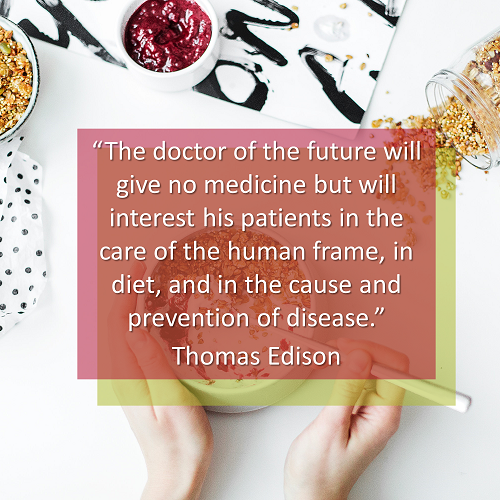 The modern world is full of advances in medicine, drugs, tools and knowledge, but that does not mean that ancient practices and ideals do not have a valuable place. Today, many people choose to take advantage of all that holistic medicine has to offer.
The modern world is full of advances in medicine, drugs, tools and knowledge, but that does not mean that ancient practices and ideals do not have a valuable place. Today, many people choose to take advantage of all that holistic medicine has to offer.
Holistic medicine as a practices does not focus on just symptoms or some disease, but instead targets the whole person and overall wellness of mind, body, spirit and lifestyle. Holistic medicine seeks to provide a balanced approach to healthcare by combining both conventional medical practices and forms of alternative therapies.
Close your eyes and imagine visiting your physician because your back is riddled with pain. Typically, your physician might perform a few tests, encourage you to stay active and prescribe pain medication.
A holistic doctor, however, will conduct a broader assessment of your overall physical health, discuss your dietary habits, sleep hygiene, emotional and mental wellness and even engage in a bit of conversation around your spiritual practices.
It is important to note that there are several different types of alternative therapy options used within holistic medical practices, including but not limited to:
- Acupuncture
- Chiropractic
- Homeopathy
- Aromatherapy
- Reiki
- Ayurvedic medicine
- Biofeedback
- Theraueputic touch
- Mind-body practices (yoga, meditation, QiGong and Tai Chi)
Benefits of Holistic Doctors
Holistic practices can use a combination of conventional medicine and alternative options. Holistic doctors provide care to the whole patient. Physicians who approach your healthcare holistically can offer a bevy of benefits with an individualized treatment plan that best fits your needs.
1 – Principles Behind Holistic Medicine
Some of the greatest benefits of holistic medicine is the principles behind it.
- All humans possess innate healing powers
- A patient is a person, not a set of symptoms of some condition or disease
- Lasting and effective healing is a team effort which includes both the patient and the doctor
- Treatment approaches target the causes of the condition and not symptoms.
2 – Focus On the Whole Person
Holistic doctors focus on the whole person. Holistic medicine principles are based on the idea that when one area of a person’s life is out of balance, it can affect all others.
For example, chronic stress can affect emotional, psychological and physical health. Another example, emotional issues such as relationship troubles can affect psychological and physical health.
Ultimately, the end goal is balance and wellness in all parts of life and self that leads to an overall well and whole person.
3 – Get To Know the Patient
Perhaps one of the most significant benefits of having a holistic doctor provide care is the amount of time he/she spends getting to understand and know your individual needs.
4 – Alternative Medicine Options
Holistic doctors deploy holistic and conventional medicinal practices. This feature enables them to provide you as their patient with a variety of treatment options that might otherwise be limited if he/she was more inclined to focus in one area.
5 – Expedited Pain Relief
Holistic treatments by doctors can help to expedite pain relief using low risk natural methods, such as meditation, and massage therapy. Examples of holistic medicine pain relief options may include acupuncture, massage, hypnosis, biofeedback, and meditation.
6 – Preventative Care
Holistic doctors focus on preventative care that can aid in reducing the risk of chronic illness.
7 – Mindfulness
Holistic doctors can help patients gain a comfort level for mindfulness in which they can connect their mind with their body and be present in the moment. This practice can have a positive impact on stress levels, the immune system and spiritual wellness.
In summary, holistic doctors offer a variety of benefits in individualized care. Holistic doctors spend more time getting to know their patients and are likely to deploy treatment options that combine traditional and alternative medicine therapies.






